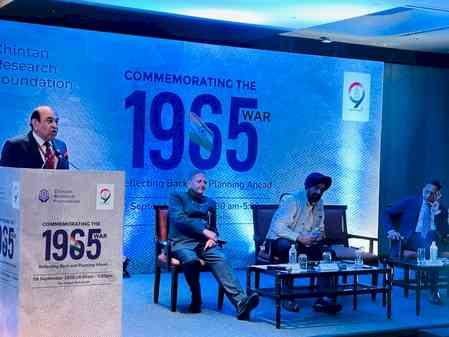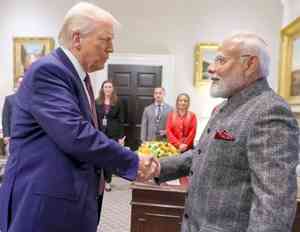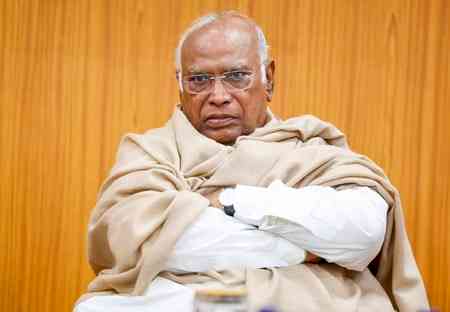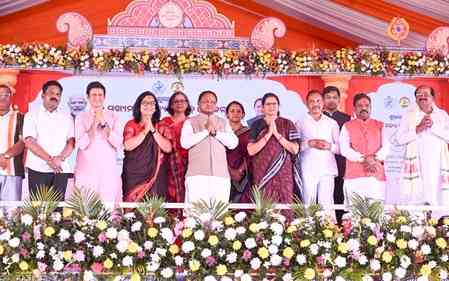Six decades after India-Pak war in 1965, its legacy continues to guide India's defence strategy
Sixty years after the India-Pakistan war of 1965, its legacy continues to guide India's defence strategy and modernisation efforts.

New Delhi, Sep 9 (IANS) Sixty years after the India-Pakistan war of 1965, its legacy continues to guide India's defence strategy and modernisation efforts.
To mark the anniversary, the Chintan Research Foundation (CRF), on Tuesday, Delhi, in partnership with the Valley of Words (VoW) at Dehradun, hosted a day-long conference titled "Commemorating the 1965 War: Reflecting Back and Planning Ahead".
The event brought together armed forces' veterans, serving officers, diplomats, and scholars to revisit the war's lessons and their enduring relevance for India's security.
The 1965 war was more than a clash of arms. It was a test of national will at a time when India faced shortages in equipment and technology.
Pakistan, emboldened by India's setback against China in 1962, launched 'Operation Gibraltar' in Kashmir followed by 'Operation Grand Slam' targeting Akhnoor.
India's decision to expand the conflict across the Punjab border into Lahore, Sialkot, and Barmer proved decisive, blunting Pakistan's offensive and shifting the momentum in New Delhi's favour.
The ceasefire of September 23 and the Tashkent Agreement of January 1966 ended hostilities but left the political dispute unresolved, laying the ground for future conflicts.
Opening the conference, Shishir Priyadarshi, President of CRF, underlined how the war's victory continues to inspire India's strategic thinking.
Similarly, Sanjeev Chopra, President of VoW, noted that the bold move to take the fight beyond Kashmir marked a turning point and significantly contributed to India's success.
Lieutenant General PJS Pannu (retd) highlighted that the lessons of resilience, unity, and preparedness drawn from 1965 remain critical as India faces complex challenges across its borders.
Delivering the valedictory address, Lieutenant General Ata Hasnain (retd), Former GOC 15 Corps and Member, NDMA, said, "History does not end with remembrance. Its purpose is to prepare us for the future. Theaterisation, joint command, and real-time decision-making are no longer optional -- they are essential to winning tomorrow's wars."
The speakers present at the event agreed that while the war exposed shortcomings, it also planted the seeds of self-reliance and institutional reform in defence planning.
The discussions also reflected on how warfare has transformed since the 1960s.
Beyond land, air, and sea, the battle space now includes cyber, space, and information domains, while artificial intelligence, unmanned systems, and precision weapons are reshaping military strategy worldwide.
The push for indigenous research and private sector involvement, especially after the success of Operation Sindoor, was cited as central to building a future-ready force.
The consensus at the event was clear: the 1965 war was a milestone not just of courage and sacrifice, but of foresight.
It reminded the nation that sovereignty is secured not by sentiment but by constant vigilance, preparation, and investment in defence.
--IANS
sas/khz



 IANS
IANS 










